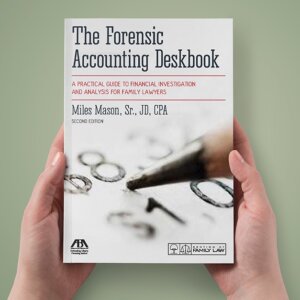Divorce Ambivalence Can Come at a Hefty Price
When I first read the precedential ruling of the Pennsylvania Superior Court in Shell v. Shell, I really didn’t find it noteworthy enough to write about. This is a case where a spouse discovered that her husband was moving money around in ways inconsistent with a “happy” 30 year marriage. She went to an attorney and that person properly said that “I can’t help unless you file for divorce.” That may seem odd to the layperson, but if one spouse has assets titled solely in his or her name, they can sell it, mortgage it or give it away without the other spouse’s knowledge or permission.
In the Shell case the wife learned that assets for which she was the named surviving beneficiary had been altered so that husband’s children were now the beneficiaries. These assets were acquired during the marriage and thus were “marital assets subject to equitable distribution” but they were titled only in husband’s name. The parties had separated so it comes as no surprise that husband’s kids might have been asking “Why is she still the beneficiary?” So, when the wife brought this set of facts to her attorney, the attorney filed for divorce and sought to have the former beneficiary declarations re-instated. Husband agreed, probably because his counsel told him that re-instatement was a likely outcome because these were marital assets.
As now seems to be a recurring theme, no one moved the divorce case along. It just sat there. Then, in August 2022, husband pulled the ultimate “fast one.” He died. Since wife was reinstated as the beneficiary, she received all the funds in the account that husband wanted to give to his kids to her detriment. The kids claimed that because these assets were marital assets, they should be divided between wife and husband’s estate. The parties had been separated since May 2019. Thus, by any measure, they had lived separate and apart for the period necessary to establish grounds for a no-fault divorce. Those grounds could have been established after one year, in May 2020. But no one filed any paperwork to have those grounds “approved.” It’s just a matter of paperwork, but neither party did it. Thus, when husband died, grounds for divorce existed but had not been “established” by filing an affidavit of separation and a document to ask that the separation be formalized as a matter of law.
Absent that paperwork, the law resorts to the age-old premise that death abates divorce. That means the divorce is moot. Dead people don’t need to be divorced by courts. The Almighty took care of their differences. In 2005 the Divorce Code was amended to say that if divorce grounds were formally established by designated court filings, if one party then died, equitable distribution would proceed, and the estate of the decedent would be substituted for the dead party. It’s complicated but the idea was that a person should not die leaving his or her spouse destitute.
We don’t know what was going on in Mr. Shell’s head and we won’t find out because in August 2022 he shuffled off his mortal coil (Hamlet Act III, Scene 1). Mrs. Shell had secured an order that she was sole beneficiary, so she was a happy camper. If Mr. Shell wanted his kids to share in that asset, he needed to file a counterclaim for divorce and assert the separation occurred in May 2019. Apparently wife acknowledged that separation date in her petition to freeze the asset he was playing with. But the trial and appellate courts made it clear in this case that it’s not enough to agree that you are separated. Someone needs to file the paperwork required by the Divorce Code and the court’s rules of procedure. The onus there was on Mr. Shell and his children. But instead, the docket sat quiet for 26 months after the one year separation date with neither party moving to have divorce grounds (one year separation) ratified by the court. The result: dad’s children get nothing.
Again, when I first read this case, I didn’t regard it as worth a write. The case essentially affirms Supreme Court precedent from 2019 in a case captioned In re Estate of Easterday, 209 A.3d 331, 340. But then I read Judge Jason Legg’s analysis of it in the 207 year old Susquehanna Independent, and realized that while the decision is not that significant, the issue is recurring. People today seem to file for divorce hoping that their spouse gets the message that things need to change. Problems develop when that change does not come about yet no one has the energy or courage to “Get ‘er done.” Life events go on and suddenly the primary breadwinner loses a job, one spouse becomes disabled or the house in Sanibel is inundated with flood waters. The point of the Shell case is that divorce litigants can’t argue substance over procedure when the statutes are clear that procedure matters. You may want to file a divorce to signal unhappiness or desire for change. But, if after a year, you are not getting the change or happiness you want, it is time to focus on what’s next. One suspects that neither Mr. Shell nor his heirs expected death to be “next” but these things happen and in this case, it seems that the heirs of Shell are concluding matters with an empty one.
Shell v. Shell, 2023 Pa. Super. 195 (10/6/23)






